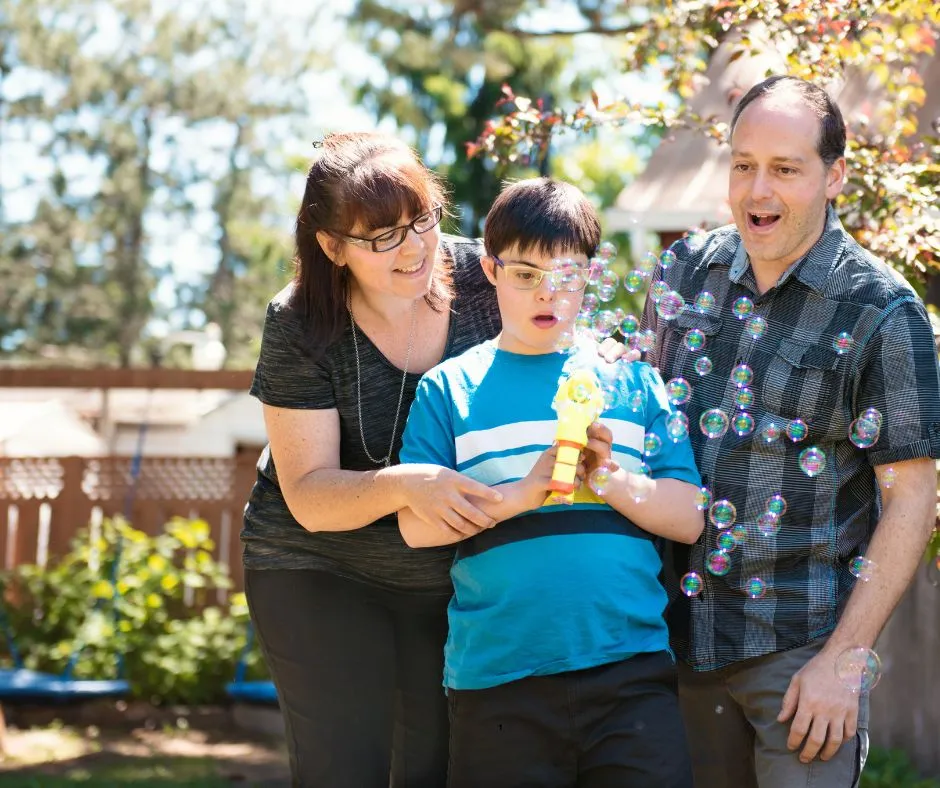Introduction
The isolation of parents of autistic children is often an overlooked and underestimated issue. While autism itself presents many challenges, the psychological and emotional impact on parents is significant but often invisible to society. These parents often find themselves alone in facing their difficulties, without a proper support network. However, it is crucial to break this taboo, raise awareness, and offer appropriate resources to better support these families. This article explores the causes of isolation, its consequences, and strategies to address it.
Table of Contents
1. Understanding the Isolation of Parents of Autistic Children
The first step toward a solution is to deeply understand the reasons for this isolation and how it affects parents.
a) Definition of Parental Isolation
Parental isolation refers to a situation where parents of children with autism feel socially excluded due to the unique challenges of raising their child. This loneliness can result from a lack of understanding from their surroundings, inaccessibility to appropriate services, or physical and mental exhaustion. These parents may feel like they are living in a very different reality compared to other families, which intensifies their sense of isolation.
b) Reasons for Parental Solitude
Several factors explain why parents of children with autism feel isolated:

- Social judgment: Many families face disapproving stares or inappropriate comments when they go out with their child.
- Lack of appropriate resources: Support services can sometimes be hard to find, limited geographically, or financially inaccessible.
- Absence of a support network: It is challenging for these parents to find people who truly understand their daily life.
- Emotional and physical exhaustion: The constant management of their child’s specific needs leaves little time to maintain social relationships.
c) Testimonials from Parents
Parent stories are essential to understanding the reality of this isolation. For example, Sarah, a mother of an autistic child, shares:
“I feel like my social life stopped after my son’s diagnosis. Finding someone who understands what I’m going through is almost impossible.”
Such testimonials highlight the need to raise awareness in society about this issue and to implement appropriate solutions.
2. Main Causes of Isolation
The isolation of parents of children with autism can be attributed to three main causes:

a) Lack of Parental and Family Support
Families of children with autism often face a lack of support from their surrounding environment. Friends and family may not understand the child’s specific needs, which leads to gradual distancing. Moreover, specialized services are often limited, further complicating the situation for parents.
b) Parental Burnout and Stress
Parental burnout is an ever-present reality. Between medical appointments, therapy sessions, managing crises, and educational needs, parents are constantly under pressure. This intense stress can lead to isolation as they have neither the time nor the energy to maintain social relationships.
c) Fear of Judgment and Social Misunderstanding
Parents of children with autism often face stigmatization. Their child’s behaviors may be misinterpreted by society, causing them to avoid public outings. The lack of autism awareness contributes to this unintended exclusion.

3. Strategies to Break the Isolation
Despite these challenges, there are several strategies to help parents overcome isolation and regain life balance.
a) Build a Support Network
Creating or joining a support network is one of the most effective ways to fight isolation. Several options are available:
- Online and in-person support groups: Platforms like Facebook offer groups where parents can exchange experiences, ask questions, and receive advice. Specialized forums also provide a space for listening and sharing.
- Specialized associations: Organizations like Autism Speaks (USA) and Autism Canada offer resources and advice. These associations also organize meetings and events to help parents connect.
- Local communities and regular meetups: Participating in local support groups can provide emotional and practical support. These meetings allow parents to meet others in similar situations, promoting the exchange of experiences and strategies to better manage daily life.
- Create an informal network: Sometimes, simply building relationships with other parents at school, in specialized centers, or during autism events can lead to lasting mutual support.
- Consult professionals: Some psychologists and social workers offer group support sessions for parents. These sessions address emotional challenges related to raising a child with autism.

b) Take Care of Oneself Despite the Challenges
It is essential for parents to take time for themselves to preserve their mental health. This may include:
- Parental respite: Specialized childcare services allow parents to take a break for a few hours.
- Relaxation activities: Yoga, meditation, reading, or any other activity that promotes well-being.
- Psychological support: Therapy can help manage stress and emotions.
- Practice self-compassion: It is important for parents to avoid self-blame and recognize that they are doing their best.

c) Raise Awareness and Educate the Surrounding Environment
One of the most effective ways to reduce isolation is to inform family and friends about autism. Organizing discussions, sharing educational resources, and inviting others to inclusive events can foster a better understanding and increased support.
d) Create Autism Parent Groups to Share Experiences
Parent support groups help break isolation by promoting exchange and mutual aid. These groups can be formal, through associations, or informal, through meetups organized between parents. They offer several benefits:

- Exchange advice and strategies: Each parent has different experiences, and these groups allow parents to learn new methods for better supporting their child.
- Feel understood and supported: Simply sharing challenges with people in similar situations can significantly reduce feelings of loneliness.
- Create lasting friendships: These meetings can lead to sincere and lasting friendships.
- Share useful resources: Information on therapies, recommendations for specialists, best educational practices, etc.
- Organize adapted events and outings: These activities allow parents and children to socialize in a supportive and understanding environment.
Conclusion
Breaking the isolation of parents of autistic children is a priority to improve their well-being and that of their child. By building a strong support network, taking care of themselves, educating those around them, and actively participating in support groups, parents can find the help and understanding they need. Awareness and access to adapted resources are key to helping these families feel less alone. Society must continue its efforts to support these parents, so they no longer have to navigate this journey in isolation.
Read also our Post: All Autistic People Are Introverted” : Myth or Truth?
Ressources:
Information on Autism Spectrum Disorder for Families | Autism Spectrum Disorder (ASD) | CDC
